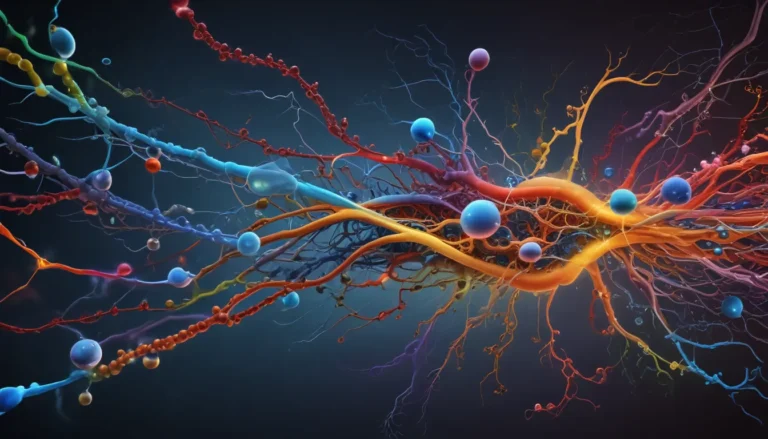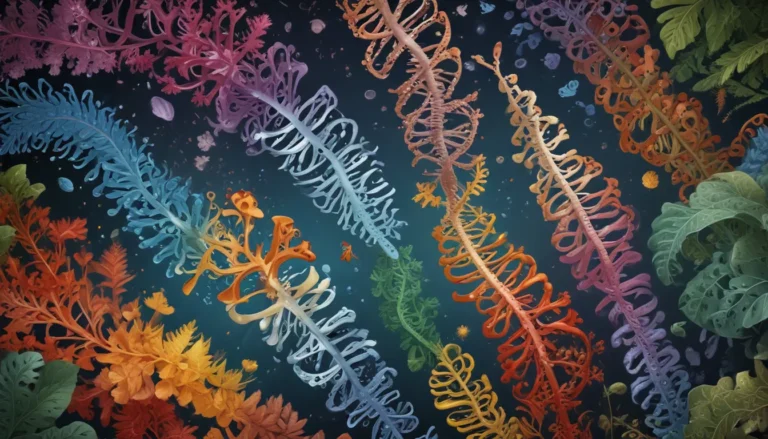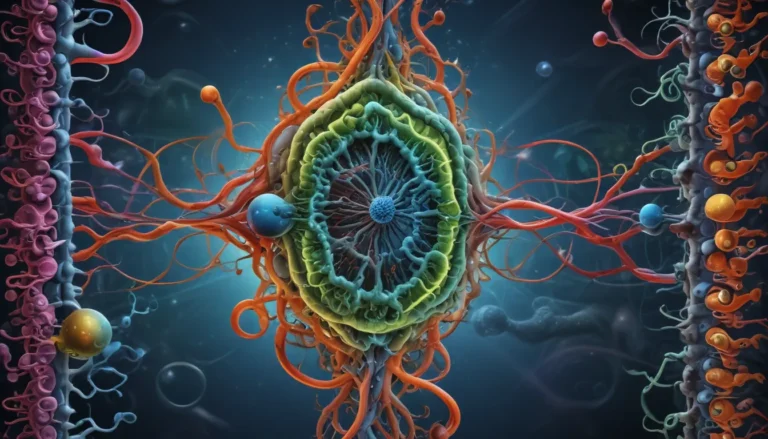A Note About Images: The images used in our articles are for illustration purposes only and may not exactly match the content. They are meant to engage readers, but the text should be relied upon for accurate information.
Acquired immunity, also known as adaptive immunity, is a captivating element of our immune system that acts as a formidable shield against harmful pathogens. Unlike the innate immunity’s general defense mechanism, acquired immunity is specific and evolves over time. It entails the identification and targeting of specific antigens, resulting in the production of particular antibodies or immune cells that can eradicate the pathogen.
In this comprehensive article, we will delve into 16 astonishing facts about acquired immunity that shine a light on its intricacy and effectiveness in safeguarding our bodies. From the astounding ability of our immune system to remember past infections to the exceptional diversity of immune cells, these facts will deepen our comprehension of how acquired immunity functions.
Marvels of Acquired Immunity
Acquired immunity is like a superpower that enables our bodies to remember and combat harmful germs, ensuring our well-being over an extended period. Vaccines serve as training sessions for our immune system, empowering it to become stronger and more adept at fighting off diseases.
The Development of Acquired Immunity
Acquired immunity comes into play after exposure to pathogens when our bodies encounter foreign substances like bacteria, viruses, or toxins. Our immune system then responds by generating specific immune cells and antibodies to combat and eliminate them.
Multifaceted Immune Responses: Humoral and Cellular
The humoral response involves the production of antibodies by B cells, while the cellular response activates T cells to directly attack infected cells, forming a robust defense mechanism against pathogens.
The Memory Cells’ Vital Role
Memory B cells and memory T cells are pivotal components of acquired immunity. These cells “remember” encountered pathogens, enabling our bodies to mount a rapid and powerful response upon subsequent exposure.
The Role of Vaccines in Acquired Immunity
Vaccines contain weakened or inactivated pathogens that stimulate an immune response, aiding in the development of immunity without causing the actual disease.
Specificity and Cross-Protection in Acquired Immunity
Our immune system exhibits a remarkable ability to recognize and respond to various pathogens in a highly specific manner, tailoring the immune response to target each invader uniquely. Moreover, acquired immunity may offer cross-protection against related pathogens in some instances.
Antibodies as Key Players
Antibodies, also known as immunoglobulins, interact with pathogens by neutralizing them, facilitating their destruction, or preventing them from infiltrating cells, thus playing a crucial role in acquired immunity.
Active and Passive Acquired Immunity
Active acquired immunity occurs when our immune system responds to a pathogen, while passive acquired immunity involves receiving pre-formed antibodies from external sources like breastfeeding.
Impact of Immune Deficiencies
Certain genetic or acquired immune deficiencies can weaken or compromise the acquired immune response, rendering individuals more susceptible to infections.
Longevity of Acquired Immunity
Once acquired, immunity to a specific pathogen can endure for years or even a lifetime, offering continuous protection against future infections.
Strengthening Through Repeated Exposure
Re-exposure to a pathogen can fortify our acquired immune response, resulting in a swifter and more efficient immune reaction upon subsequent encounters.
Transfer Through Blood Products
Through blood transfusions or the administration of immune globulins, acquired immunity can be passed from one individual to another, offering temporary safeguarding.
Immunological Memory as a Hallmark
The ability of our immune system to “remember” past encounters with pathogens is a crucial aspect of acquired immunity, ensuring a more effective response in the future.
Boosting Acquired Immunity Naturally
Exposure to mild or asymptomatic infections can enhance our acquired immune response, bolstering our overall immunity to a variety of pathogens.
The Link Between Acquired Immunity and Autoimmunity
In some cases, acquired immunity dysfunction can lead to autoimmune disorders, where the immune system mistakenly attacks the body’s own cells or tissues.
Advancements in Treatments Through Understanding
Studying acquired immunity’s mechanisms enables scientists to develop vaccines, therapies, and treatments to combat infectious diseases and immune-related disorders effectively.
In conclusion, acquired immunity serves as a robust defense mechanism that our bodies employ to fend off pathogens. Its adaptability, memory, and specificity make it a captivating aspect of our immune system. By delving into these 16 mesmerizing facts about acquired immunity, we gain a deeper understanding of its complexity and significance in preserving our health.
FAQs on Acquired Immunity
- What is acquired immunity?
-
Acquired immunity, or adaptive immunity, is a specific defense mechanism that develops over time in response to exposure to antigens like viruses, bacteria, or foreign substances.
-
How does acquired immunity differ from innate immunity?
-
Innate immunity is innate and provides a generalized defense, while acquired immunity is more targeted and specific to particular antigens.
-
How is acquired immunity acquired?
-
Acquired immunity can be acquired naturally through pathogen exposure or artificially through vaccination.
-
How long does acquired immunity last?
-
Acquired immunity can last for years or even a lifetime due to memory cells formed during the initial immune response.
-
Can acquired immunity be transferred from one person to another?
-
Yes, acquired immunity can be transferred through antibodies from a previously infected or vaccinated individual to another, known as passive immunity.
-
What is the role of vaccinations in acquired immunity?
-
Vaccinations stimulate the immune system to generate a specific response against antigens, leading to the development of acquired immunity.
-
Can acquired immunity be lost?
-
Acquired immunity may diminish over time without exposure to specific antigens, but memory cells may persist, providing long-term protection.
-
Can acquired immunity be developed for all diseases?
-
Acquired immunity can be developed for many diseases, but some complex pathogens pose challenges in establishing long-lasting immunity.
-
How does acquired immunity contribute to herd immunity?
-
Acquired immunity is crucial in achieving herd immunity, limiting disease spread when a significant portion of the population is immune.
-
Can acquired immunity be reactivated after a long period?
- Acquired immunity can be reactivated upon re-exposure to antigens, as memory cells mount a swift response, ensuring protection even after a prolonged period.
Acquired immunity is a captivating feature of our immune system, offering protection against a multitude of pathogens. Exploring the world of acquired immunity sheds light on the significance of vaccines and the resilience of memory cells in providing enduring defenses. For those intrigued by the immune system, delving into immunodeficiency disorders can provide valuable insights into the repercussions of acquired immunity disruptions.
Our dedication to delivering credible and engaging content drives us to offer a wealth of diverse insights and information contributed by real users like yourself. Each fact undergoes meticulous review by our editors to ensure accuracy and reliability. Trust in our commitment to quality and authenticity as you embark on a journey of exploration and learning with us.






